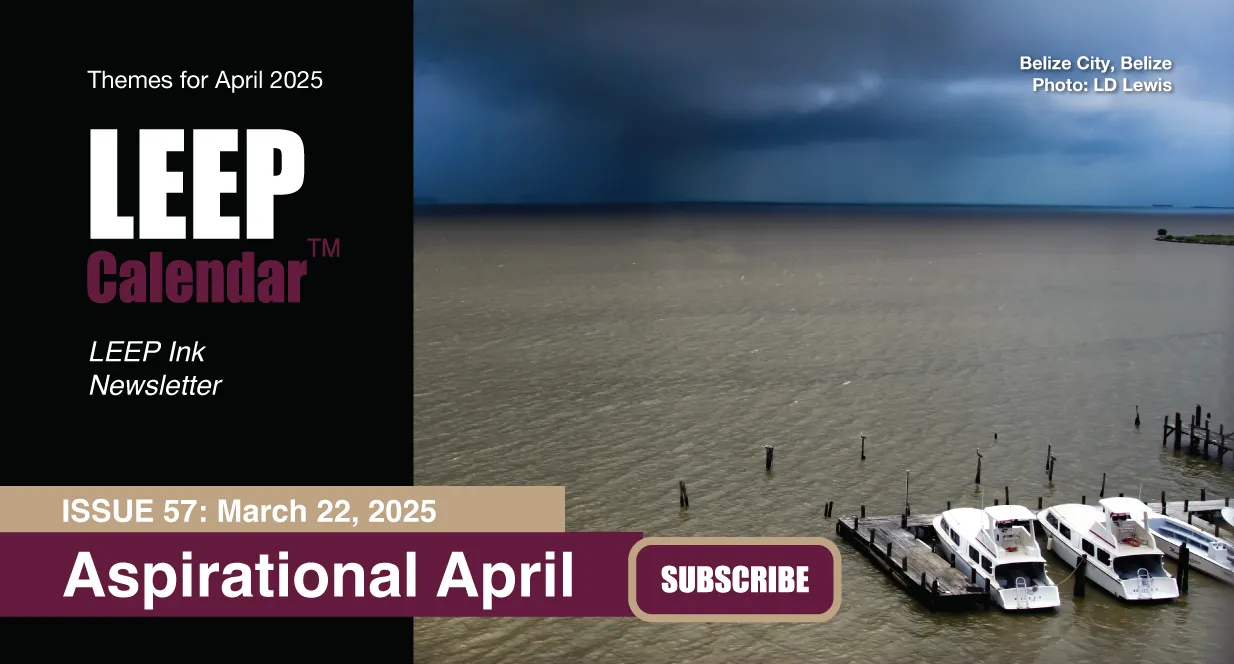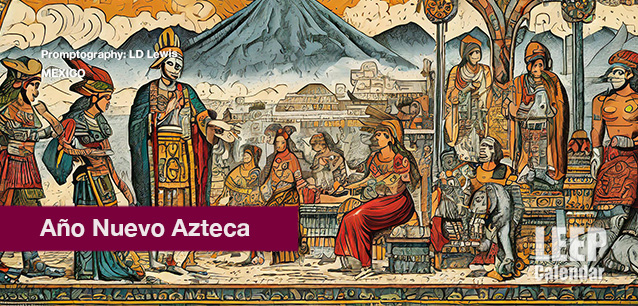 AD
AD
Today is: July 11
Scroll to explore events active on this date.
Additional Events on LEEP
LEEP INK FEATURES

May Blooms: Events in May 2025
Along with October, May is one of the most densely packed months of the year. It's before the summer humidity and the last whole month of the school year. The weather is warming in t...

Sweet June 2025
The solstice on the 20th marks the onset of summer (Northern Hemisphere) or winter (Southern Hemisphere). Many people, particularly in Europe, North America and Asia, will be embarking o...

Events in April 2025
Spring has sprung in the north, and the first hints of Autumn are on the horizon in the south. April is the month spring (or fall) gets underway, and it is filled with religious celebrations, including the Mu...
About Año Nuevo Azteca in Mexico
Mexico & Central America
Ends: Mar 12, 2025
DESCRIPTION:
Año Nuevo Azteca in Mexico:
Celebrating the Aztec Calendar's Rich Heritage
Año Nuevo Azteca, or Aztec New Year, is an observance in Mexico that honors the ancient Aztec calendar, a central element of Aztec culture and history. The day celebrates the rich cultural heritage influencing Mexican society and indigenous communities.
The Aztec calendar, a sophisticated and intricate system, was central to the Aztec civilization, which flourished in central Mexico in the 14th to 16th centuries. This calendar was not just a tool for measuring time but also a framework for religious and social rituals deeply embedded in the cosmology and mythology of the Aztec people.
The Aztec calendar first appeared during the sixth century and draws heavily on multiple Mesoamerican cultures. It consisted of two overlapping cycles: the 260-day Tonalpohualli, used for divination and determining the timing of religious and cultural events, and the 365-day Xiuhpohualli, which measured the solar year.
The Tonalpohualli often called the sacred or ritual calendar, was divided into 20 periods of 13 days. Each period was associated with specific deities and cosmological elements, making it a vital tool for priests in forecasting auspicious or inauspicious days for various activities. The Xiuhpohualli was similar to the solar year in the Gregorian calendar but was divided into 18 months of 20 days, plus a short month of five days called nemontemi, considered unlucky.
The Aztec calendar differs significantly from the Gregorian calendar, today's standard system. The Gregorian calendar, introduced in 1582 by Pope Gregory XIII, is a solar calendar based on the Earth's revolutions around the Sun and is primarily secular in its application. In contrast, the Aztec calendar was profoundly religious and symbolic, interweaving mythological and astronomical cycles.
Various cultural and educational events, including traditional dances, ceremonies, and lectures on the Aztec civilization, mark Año Nuevo Azteca. This observance allows Mexicans, especially those with indigenous ancestry, to reconnect with and honor their ancestral heritage. It also serves as an educational moment for the broader public to learn about the complexity and sophistication of the Aztec civilization and its contributions to history and culture.
Año Nuevo Azteca in Mexico celebrates the ancient Aztec calendar, a symbol of the Aztec civilization's rich cultural and historical tapestry. This observance highlights the enduring influence of indigenous cultures in Mexico and serves as a reminder of the country's diverse and multifaceted heritage.
VIDEOS
SUPPORTING DOCUMENTS
Currently, this event does not have supporting documents.
ADDITIONAL IMAGES
Currently, this event does not have supporting images.
Where would you like to go now?
 AD
AD


/footer-logo.svg)
